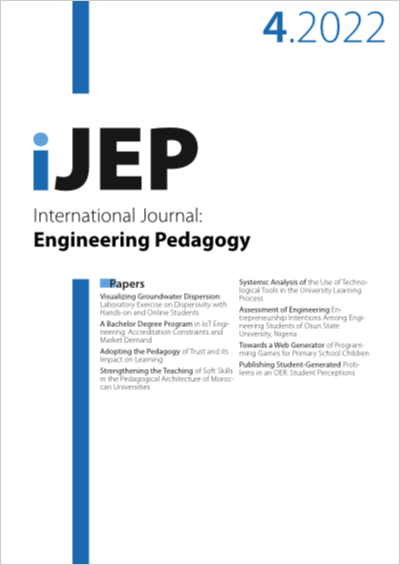Adopting the Pedagogy of Trust and its Impact on Learning
DOI:
https://doi.org/10.3991/ijep.v12i4.29719Keywords:
Trust, formative assessments, summative assessments, honour systemAbstract
In this work, we present the results of our attempts to transit into a trust-based assessment environment for adult learners. The impact of utilizing an honour system of assessment throughout a course on data structures and algorithm design has been evaluated. The performance of the students has been compared with the performance of students from two previous cohorts that appeared for the same assessments in an invigilated environment. We found that with adult learners, who are more focused on learning the concepts to hone specific skills for applicability at their workplace, the performance variation between the test cohort and the reference cohorts was not significant. With further evidence of this promising initial step, we could evolve into a larger portfolio-based education framework in which students can showcase their competence and skills through a collection of projects and assessments (formative as well as summative), to help with their career growth. Establishment of such pedagogies will help our students step out of their comfort zone, undertake exploratory studies, be willing to unearth their vulnerabilities, and work to improve their shortcomings to help them advance their careers.
Downloads
Published
How to Cite
Issue
Section
License
Copyright (c) 2022 Gaganpreet Sidhu, Seshasai Srinivasan

This work is licensed under a Creative Commons Attribution 4.0 International License.


